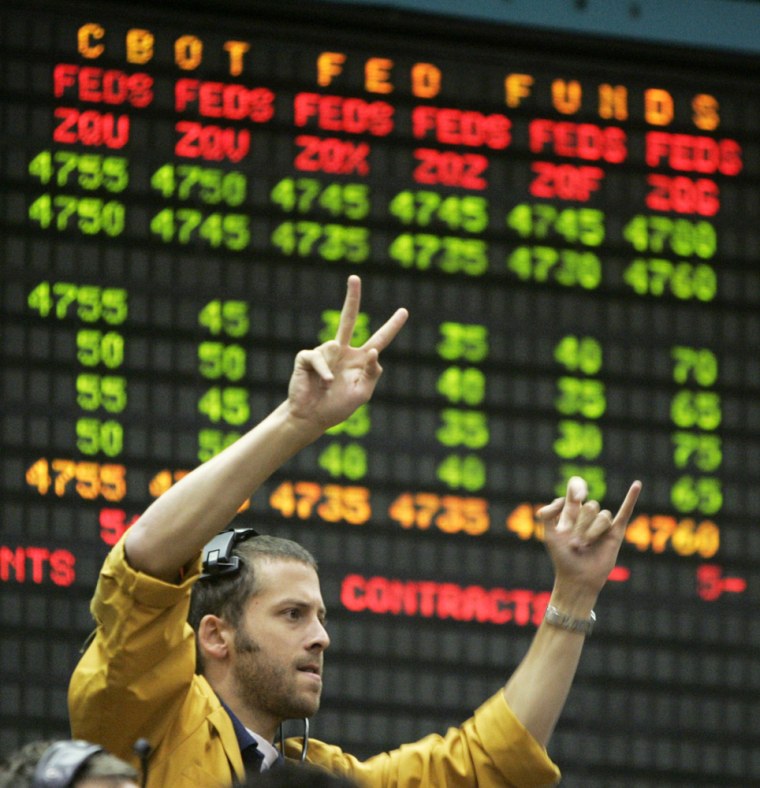The Chicago Mercantile Exchange said Tuesday it agreed to purchase the Chicago Board of Trade for $8 billion, as cross-town financial rivals with roots in the 1800s join forces in the face of intensifying global competition.
The deal will combine both the electronic and open-outcry trading platforms of the Board of Trade, founded in 1848 for farmers to buy and sell grain, with the 108-year-old Merc, which has gone far beyond its trademark livestock contracts to become the world’s largest futures exchange.
If the deal is approved, the two companies will move to a single trading location at the Chicago Board of Trade. The combined company will be named CME Group Inc., and will be headquartered in Chicago.
The resulting global derivatives exchange will have average daily trading volume approaching 9 million contracts per day, easily surpassing the Eurex and other competitors.
“The idea to merge these two great companies has been contemplated for decades,” said Chicago Mercantile Exchange Holdings Inc. Chairman Terrence A. Duffy, who will become chairman of the combined organization.
The deal quickly won praise from Wall Street. Shares in CBOT Holdings Inc., which had its initial public offering a year ago Thursday, soared on the New York Stock Exchange, while shares in the CME also increased.
“The merger makes complete strategic sense” and also offers more than $125 million in savings by combining the two, said Michael Vinciquerra of Raymond James & Associates in a note to investors.
Prudential Equity Group analyst Robert Rutschow said the acquisition seems somewhat pricey but “the combined company is a derivatives powerhouse.”
Executives said serious talks between the two leading U.S. futures exchanges have been under way for nearly a year.
Commodities and stock exchanges have been under increased pressure to consolidate as electronic trading proliferates. The pressure stepped up last month when the IntercontinentalExchange Inc. announced a $1 billion deal to acquire the New York Board of Trade.
The consolidation push follows similar activity among stock markets. NYSE Group Inc. is in the midst of trying to merge the New York Stock Exchange with Euronext NV, while rival Nasdaq Stock Market Inc. continues to show interest in buying the London Stock Exchange PLC.
CBOT stockholders will have the right to receive 0.3006 shares of CME common stock for each share of the Chicago Board of Trade, or cash equal to the value of the exchange ratio based on a 10-day average of closing prices of CME common stock at the time of the deal.
The cash portion of the purchase price won’t exceed $3 billion. If no shareholders elect to receive cash, shareholders of CME will own 69 percent of the merged company and CBOT holders will own 31 percent, with CME issuing about 15.9 million shares valued at about $8 billion.
Based on Monday’s closing stock prices of both companies, the merged company is valued at $25 billion. The purchase is expected to add to earnings in 12 to 18 months after closing, and deliver pretax cost savings of more than $125 million beginning in the second full year after completion.
CBOT Chairman Charles P. Carey will become vice chairman. CME CEO Craig S. Donohue will serve as CEO of the new company with CBOT CEO Bernard W. Dan remaining in his current position to oversee CBOT’s activities, products and customers until the transaction is complete, at which time he will serve as special adviser to the combined company for one year.
The transaction is expected to close by the middle of 2007, pending approvals by regulators and shareholders of both companies and CBOT members.
